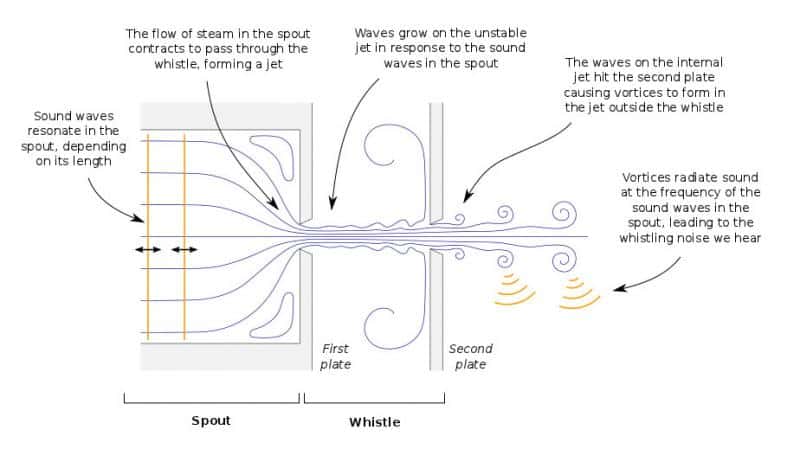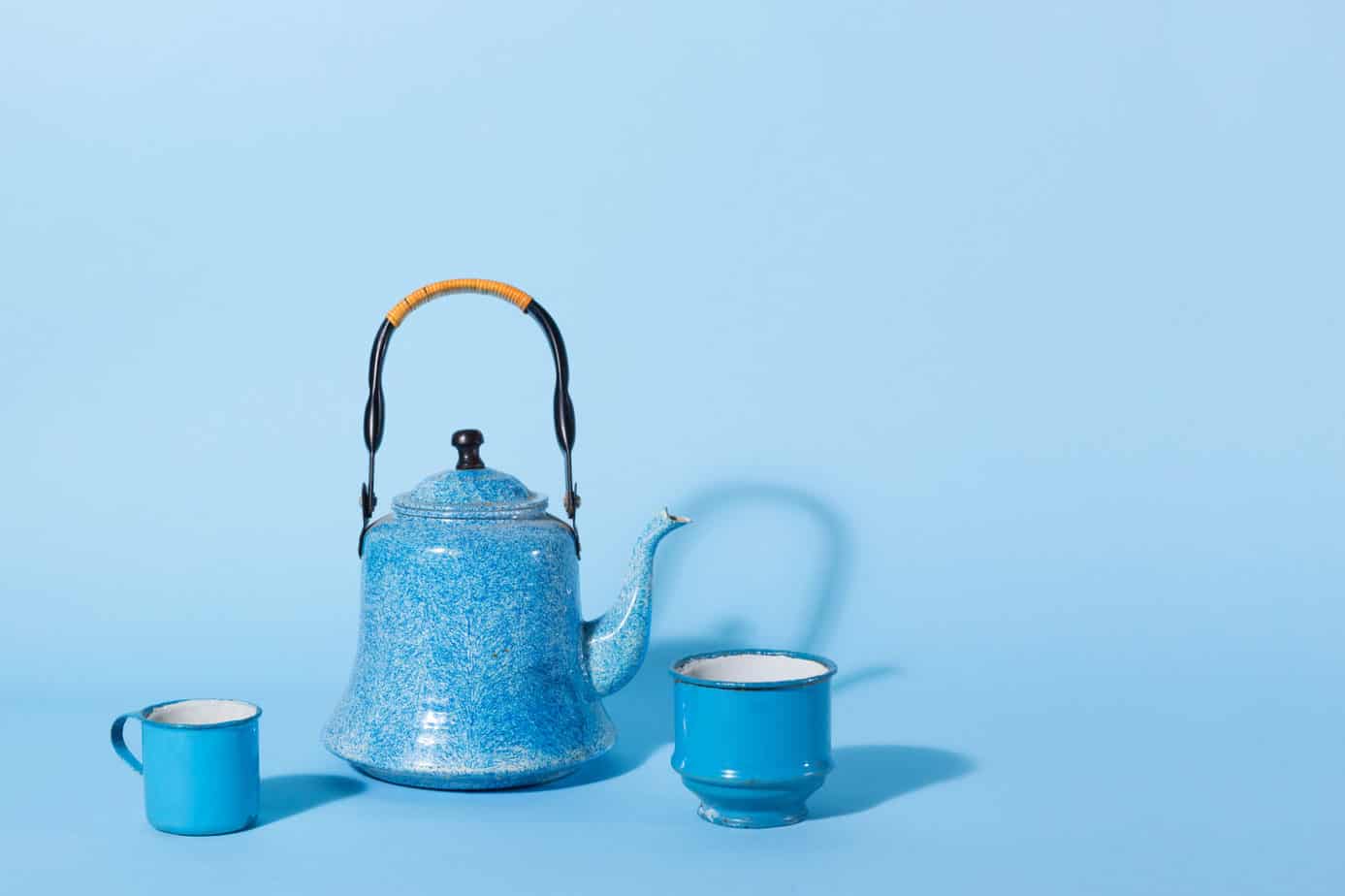Do you know what causes kettles to whistle? It's not a question that many people think about, but it's actually a pretty interesting phenomenon.
In this guide, we take a closer look at the science behind why kettles whistle. We will also provide some tips on how to reduce or prevent kettle whistling altogether. Or if you love the sound, how to enhance it!
Why Do Kettles Whistle?
The whistling sound that kettles make is caused by the formation of steam bubbles. As the water in the kettle boils, these bubbles grow in size until they eventually break free from the surface and escape. This steam creates vibrations in the kettle as the steam rises through the kettle. Once the virbations reach the spout of the kettle, the steam vibrates in a narrower space, which in turn creates the loud whistling noise.
What is the Science Behind Whistling Kettles?
The above is the general knowledge of why kettle's whistle, but did you know we didn't know the exact scientific reason behind it until 2013!? This question was finally answered by two Cambridge University researchers in The Physics of Fluids academic journal.
The short explanation as shown in the below diagram is that above a certain flow speed, tiny vortices - regions of swirling flow - produce the sound. If you want the detailed explination, check out the journal linked above.

Diagram showing why kettles whistle.
How To Prevent Kettles From Whistling?
If you find the sound of a whistling kettle to be annoying, there are a few things you can do to reduce or prevent it altogether.
One option is to simply not fill the kettle all the way to the top. This will allow less water to vaporize and escape, which should reduce the amount of whistling.
Another option is to use a kettle with a wider opening. This will allow the steam to escape more easily and should also reduce the amount of whistling.
Finally, if all else fails, you can always just turn the kettle off as soon as it starts to whistle! This will prevent the steam bubbles from growing in size and breaking free from the surface of the water.
How to Enhance Kettle Whistling
If you love the sound of a whistling kettle, there are a few things you can do to enhance it.
One way to make the kettle whistle louder is to use a smaller opening at the top. This will allow less steam to escape, which will cause the pressure inside the kettle to build up and create a louder whistling sound.
Another way to make the kettle whistle louder is to use a pot with a wider base. This will create more turbulence as the water boils, which will cause the steam bubbles to grow in size and produce a louder whistling noise.
Finally, you can also try adding some herbs or spices to the water. This will create more vapor and make the kettle whistle even louder!

A narrow spout makes more noise.
At What Temperature Does a Kettle Whistle?
Kettles whistle when the water inside them reaches a boiling point. The exact temperature at which this happens varies depending on the type of kettle and the amount of water it contains, but it's usually around 100-120 degrees Celsius.
Does Distilled Water Cause Less Sound?
Yes, distilled water will cause less sound because there are no minerals to build up and cause the kettle to whistle.
Do Quite Kettles Exist?
Yes, there are actually kettles on the market that are designed to reduce or prevent the whistling sound. These kettles have a wider opening at the top and often include a built-in filter.
If you're looking for a quieter kettle, be sure to check out our selection of quite kettles in our best kettle Australia post.
Do Kettles Whistle in Other Countries?
Kettles in other countries do whistle, but the sound is often different.
In China, for example, kettles make a "shhh" sound instead of a whistle. This is because the Chinese word for kettle (火锅 huǒguō) is also the word for "fire pot".
In Japan, kettles make a "zzz" sound instead of a whistle. This is because the Japanese word for kettle (かんぼう kanbō) sounds like the onomatopoeia for boiling water.
Do you have a whistling kettle at home? What sound does it make? Let us know in the comments below!
